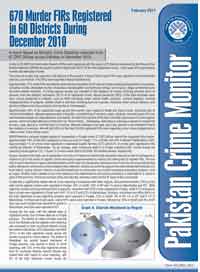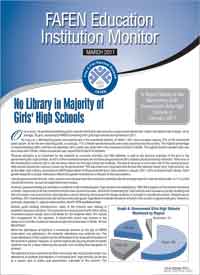- Lack of Staff to run TB, Diarrheal and Malaria Control Programs
- Deficiency of ECG, X-Ray Machines and Oxygen Tents
ISLAMABAD, March 14, 2011: Around one sixth (17%) of Rural Health Centers (RHC) monitored by FAFEN during January, 2011 did not have trained staff to attend to Tuberculosis patients. Similarly, around one fifth (19%) of observed RHCs were lacking operational delivery rooms, according to FAFEN Health Institution Monitor, released here Monday.
Though the Ministry of Health has undertaken strategies aimed at improving standards of pediatric and female reproductive health, as well as to reduce communicable diseases like TB, in light of commitment to the Millennium Development Goals, lack of trained staff to deal with TB cases and operational delivery rooms and delivery kits at monitored RHCs should be a cause of concern.
Dental rooms, ophthalmology rooms, operation theatres for minor operations and laboratories were absent in several RHCs. In addition to lack of staff to run TB, Diarrheal and Malaria Control programs, deficiencies were seen with regard to basic equipment necessary for diagnosis and treatment. A significant number of RHCs also did not have Sui Gas and telephone line connections.
FAFEN Governance Monitors visited 72 RHCs in 61 districts nationwide during January 2011. Thirty eight (38) RHCs were visited in 28 districts of Punjab, 21 in 18 districts of KP, eight in nine districts of Sindh and five in six districts of Balochistan.
Pediatric and female reproductive health was observed to be in a state of neglect since 19% of the monitored RHCs lacked operational delivery rooms. Delivery kits were missing in 17% RHCs monitored across the country. Likewise, 83% of the monitored RHCs did not provide food commodities to vulnerable groups, including lactating mothers and malnourished children. Similarly, advisory services to breastfeeding mothers were not offered in 25% of the monitored RHCs.
Ophthalmology (eye) and dental rooms were missing in 86% and 26% of the monitored RHCs, respectively, while operation theaters for minor operations were not present in 24% RHCs. It was also observed that 14% RHCs had no laboratory which means that there is no place to carry out necessary medical tests in the RHCs, or of safely storing the results. In all these cases, the absence of these medical services has the same consequence of additional cost of travel and accommodation for patients who will have to seek treatment in other areas. Also, if treatments are spread over several sittings, it will further increase the overall costs.
Thirty three percent (33%) of the monitored RHCs did not have staff to run the Control of Diarrheal Diseases (CDD) program and 15% lacked the required staff for Malaria Control Program (MCP).
Equipment necessary for diagnosis and treatment like ECG machines, X-Ray machines, and oxygen tents were absent in 61%, 39% and 24% of the 72 monitored RHCs, respectively. Furthermore, syringe cutters and sterilizers were absent in 18% and 14% monitored RHCs, indicating the possibility of re-use of syringes and use of unsterilized medical equipment.
Although the monitored RHCs reported significant deficiencies, 93% had a ward for in-patients and 85% had X-Ray rooms.
In January, 92% monitored RHCs did not have a Sui Gas connection, which means electricity and/or L.P.G. are being used for heating, cooking and other purposes. In addition, 46% of the monitored RHCs did not have a landline telephone connection
Apart from these deficiencies, functional ambulances were not present in 22% of the monitored RHCs nationwide which has negative implications for the emergency services of the respective facility. Power backup arrangements (generators) were also not available in 36% monitored RHCs. This can have potentially hazardous effects, especially when an operation is being carried out. Moreover, wheelchairs and stretchers were lacking in 29% and 14% monitored RHCs, respectively.
Sixty two visits were made by government officials and elected representatives in the past three months to the 72 RHCs monitored in January (40 by EDO/Health and 22 by other government officials). Information about visits by any elected representative, including MNAs and MPAs, was not shared with FAFEN Monitors.
About FAFEN
FAFEN is a network of 35 civil society organizations working to foster democratic accountabilities in Pakistan. It is governed by Trust for Democratic Education and Accountability. For more information please visit www.fafen.org.



